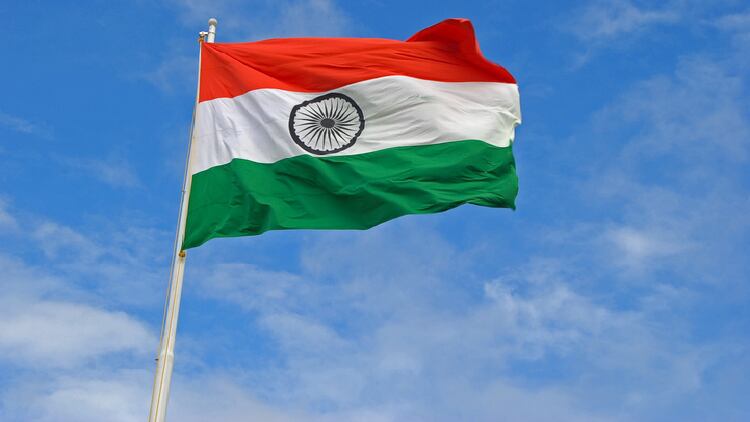The Expert Nutraceutical Advocacy Council (ENAC) said it would be writing to the government for reconsideration on the reduction of GST for supplements from the current 18 percent to six percent.
The Indian government announced its budget for this year on Feb 1.
Budget for health and wellbeing, including those for the Department of Health and Family Welfare, Department of Health Research, Ministry of AYUSH, COVID-19 related special provisions, and nutrition, is up 137 percent to INR$2.23tr (US$30bn).
However, the budget for nutrition alone, under the Poshan Abhiyan (National Nutrition Mission), has been drastically cut by 27 percent - from INR$37bn (US$507m) last year to INR$27bn (US$370m) this year.
An industry expert added that he was expecting the government to reduce the GST rate on supplements.
“There is no special grant of budget for the nutraceutical sector. We were expecting the Government to rethink the GST rate of supplements to go down from 18 to six percent.
“Amidst pandemic, the consumption of nutraceuticals has almost gone up by two to three folds, and also if given the focus on the nutraceutical sector, the Government could have the opportunity to bring India into global spotlight for the manufacturing of nutraceuticals by newer investments and innovation,” Sandeep Gupta, director of ENAC said.
Opposite views
On the other hand, another expert highlighted the positive steps the government was taking to improve nutrition more broadly.
“You will be happy to note that this year’s budget is outcome focused and many indicators are aligned with target driven Poshan Abhiyan indicators,” Basanta Kumar Kar, the recipient of the Global Nutrition Leadership Award 2019.
Poshan Abhiyan, one of the flagship nutrition programs by the Indian government, was launched in 2018.
It aims to reduce the level of stunting, under nutrition, anaemia, and low birth weight in children, while also focusing on the nutrition of adolescent girls, pregnant women, and lactating mothers.
For instance, its target is to bring down stunting of children in the age group of zero to six from 38.4 percent to 25 percent by year 2022.
"To strengthen nutritional content, delivery, outreach, and outcome, we will merge the Supplementary Nutrition Programme and the Poshan Abhiyaan and launch the Mission Poshan 2.0,” finance minister Nirmala Sitharaman also said during the budget announcement.
Mission Poshan 2.0 is an umbrella scheme covering the Integrated Child Development Services (ICDS), Anganwadi Services, Scheme for Adolescent Girls, National Creche Scheme, and Poshan Abhiyan.
The government would also adopt an intensified strategy to improve nutritional outcomes across 112 aspirational districts, where malnutrition is of high prevalence.
“The nutrition budget can be viewed holistically along with opportunities and investments in both nutrition focused and nutrition sensitive interventions.
“This year, the Government has also focused on nutrition sensitive interventions which would benefit nutrition sector and I am sure it will contribute to nutrition outcomes,” Basanta said.
Examples include the Jal Jeevan Mission, where the government will be pouring INR$2870bn (US$39bn) in addressing heavy metal contamination and ground water iron policy. Basanta believes this would boost nutrition outcomes.
From food to nutrition
The government’s investment in the food Micro Small Medium Enterprise (MSME) will benefit the nutrition sector, said Basanta.
“The government has clearly articulated to promote micro and small processing sheds created in mega food parks, the setting up of food preservation units, and operating food processing units in agro-food clusters during the year.
“It is the time for the food entrepreneurs to be transformed to nutrition entrepreneurs,” he said.
He explained that MSMEs were crucial in nutrition initiatives as they were the most common and direct food retailer in the rural and poor regions where malnutrition is most serious.
“The local food businesses are critical for profitable nutrition because they are a primary food source for many malnourished low-income households.
“The existing food business entrepreneurs can transform themselves into nutrition entrepreneurs to increase access to safe and nutritious diets.”
For instance, he said that these firms could work on addressing micronutrient deficiencies common in the Indian population and do away with trans-fats.
They could also invest in quality assurance, quality checks equipment to improve food quality.
In this case, he said the government could provide credit scheme support to stimulate innovation. They could also explore the possibility of a ‘nutrition fund’ to support MSMEs that manufacture nutritious foods.
According to India’s National Family Health Survey conducted in 2015 and 2016, 35.7 percent of the children under the age of five were underweight, while 38.4 percent were stunted.
The Food Safety and Standards Authority India (FSSAI), involved in food fortification policies, last year said it planned to make fortification mandatory for edible oil and milk, on top of its focus on local staples.
Challenges
Engaging MSMEs, however, is not without challenges, as firms might be reluctant to up-skill and invest.
Moreover, there could also be a lack of knowledge and skills on how to process, manufacture, and store foods and minimising the loss of nutrients throughout the process.
The situation is not helped by companies that refuse to upgrade their skill sets and a lack of industry network that facilitates knowledge sharing.
“Most food MSMEs only think of themselves as a food business, or worse still, only a moneymaking business.
“They need to change their thinking and realise how important nutrition is, as it can contribute to nation building, public good, increase human capital potential, growth, and productivity,” Basanta said.




